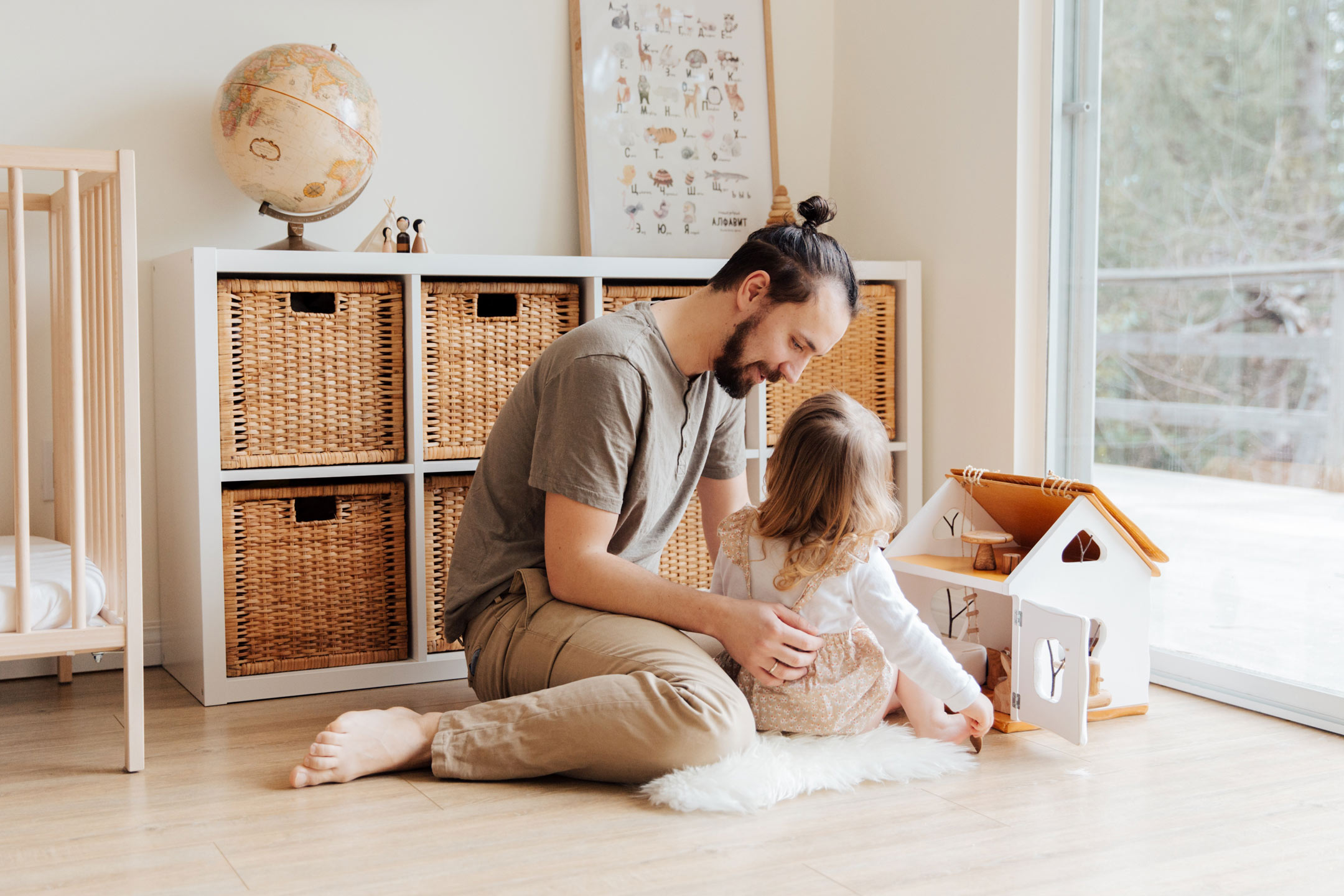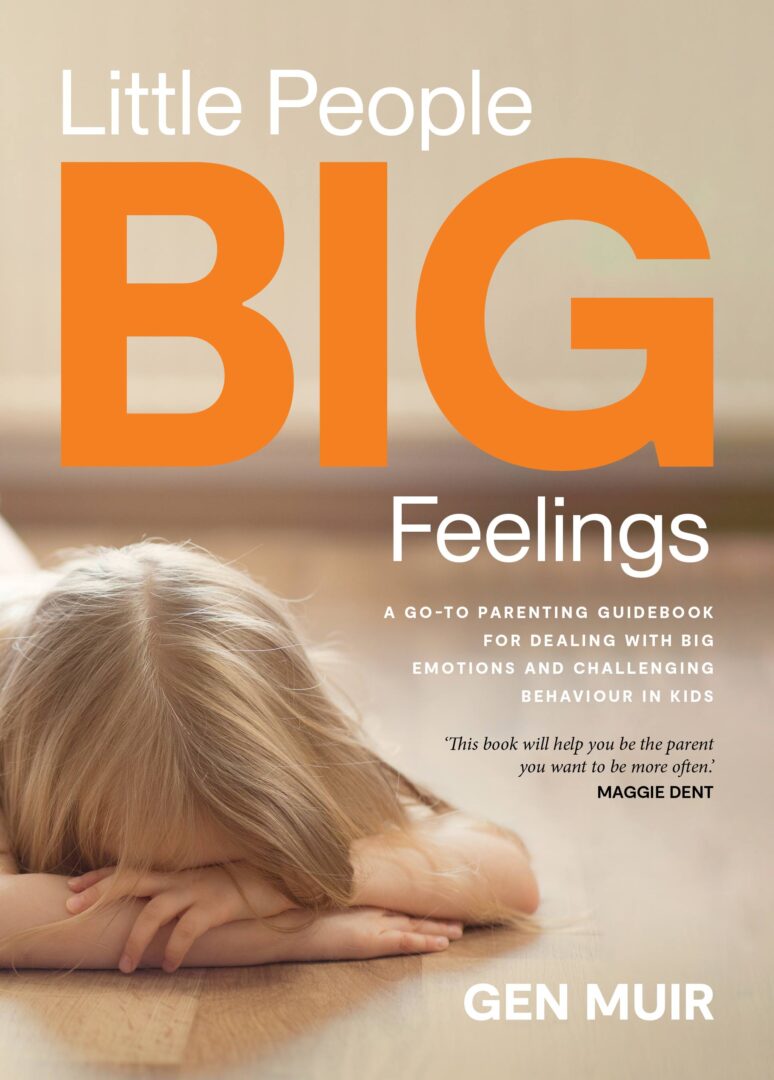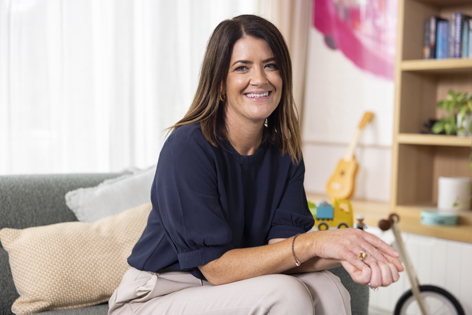
12 Feb 6 tips for building courage in kids
Gen Muir looks at dealing with big emotions and challenging behaviour in kids in her new book ‘Little People, Big Feelings‘
1. Talk to your child as if they are already brave
The way we talk to our kids about what they are doing makes a big difference to how they view themselves. We might think it’s helpful to say, ‘I know you can be brave,’ but it implies our child is not already brave. What we can do instead is tell them stories about how you have seen them do so many brave things. This implies they already are brave so the next challenge can feel more doable.
2. Let them struggle and fall
Kids need lots of opportunities to fall and fail to be brave. When we protect them from failing, the real risk is they can get increasingly scared to take risks. Even as our babies begin to try to reach for toys, we can build future resilience by allowing space for them to struggle. It might be your baby reaching for a ball and rather than immediately picking it up for them you notice: ‘You want that ball? It’s hard to reach.’ Maybe you will pass the ball to them, or maybe you hang a little longer and much to your delight and your child, they get there themselves . . . and you realise what a joy it is to allow the struggle that can lead to success.
It also can mean intervening less when kids are taking (reason- able) risks. It’s oh-so-hard to bite your tongue and hold back from saying, ‘Be careful!’ but so important that kids get to experience smaller falls in order to learn to navigate risks and regulate through bigger falls in life. When they do fall, we provide empathy: ‘Oh, you tripped on that step. Are you okay? It’s a big and tricky step that one.’
3. Praise effort (not outcome)
When we focus on their ‘effort’ not the outcome or success, it encourages our child to be brave and try because it builds intrinsic motivation.
‘Wow, you did it! I know how hard you’ve been practising your stroke and how much you wanted to get to the next level in swim- ming. How do you feel?’
‘It’s brave to climb the big tower, and it’s brave NOT to climb. I like how brave you were in telling your teacher you didn’t feel ready to climb the tower yet.’
4. Childhood is not a race . . .
Trust that whatever the current challenge is, your child will get there at their own pace. It’s so easy these days to compare your child, their development and their skills to those of other children, especially via social media. Remember social media is NOT real. All kids develop at a different rate and the more we nurture the strengths of our child, rather than trying to ‘fix up’ the weakness, the better everything goes.
5. Change the scene
A change can allow us all to relax, and for our child who is nervous to try something new to stretch. Ideas for changing the scene might be:
- Attempting a new skill or a challenge while on holiday – sometimes a change to the four walls allows our child to give something new a go.
- Practise the speech at school while driving in the car, lowering the pressure and using the fact you are not staring your child down to make them feel more at
- Serving a new food alongside a safe food in picnic style, and enjoying a backyard picnic that lowers the pressure to try the food.
6. Be the example
Our kids are watching more of what we DO than what we say. When was the last time you tried something that scared you or that you weren’t good at yet?
According to Maggie Dent who speaks often on resilience, one of the issues around resilience is that we often think we are supposed to live lives that are happy and perfect – where things don’t go wrong. But in reality, it is through the early years that we should be embracing the idea that adversity and struggle are really good for kids, and that failing is a wonderful teacher.
I adore the teachings on resilience that the incredible Maggie Dent offers the world. It’s a reminder that struggle isn’t a bad thing and is actually so good for kids (and us).
The thing is, there is good stuff amongst that hard stuff for kids:
- That feeling of trying, of struggling, maybe even failing, and knowing that you are loved even in these
- That when we struggle what we really want is to be heard, not to have it fixed.
- Plus the bonus of the pure thrill when your kids can look at you with pride because THEY finally did it!
 This is an extract from Little People, Big Feelings by Gen Muir (Macmillan Australia, RRP $36.99)
This is an extract from Little People, Big Feelings by Gen Muir (Macmillan Australia, RRP $36.99)
Parenting expert and mum-of-four Gen Muir has helped thousands of families to navigate strong emotions and challenging behaviour in young kids. In her debut book – Little People, Big Feelings – Gen shares her tried-and-tested techniques to help you through some of the most difficult moments of parenting – public meltdowns, bedtime struggles, school refusal, new sibling rivalry – without losing your own mind or quashing your child’s spirit.


